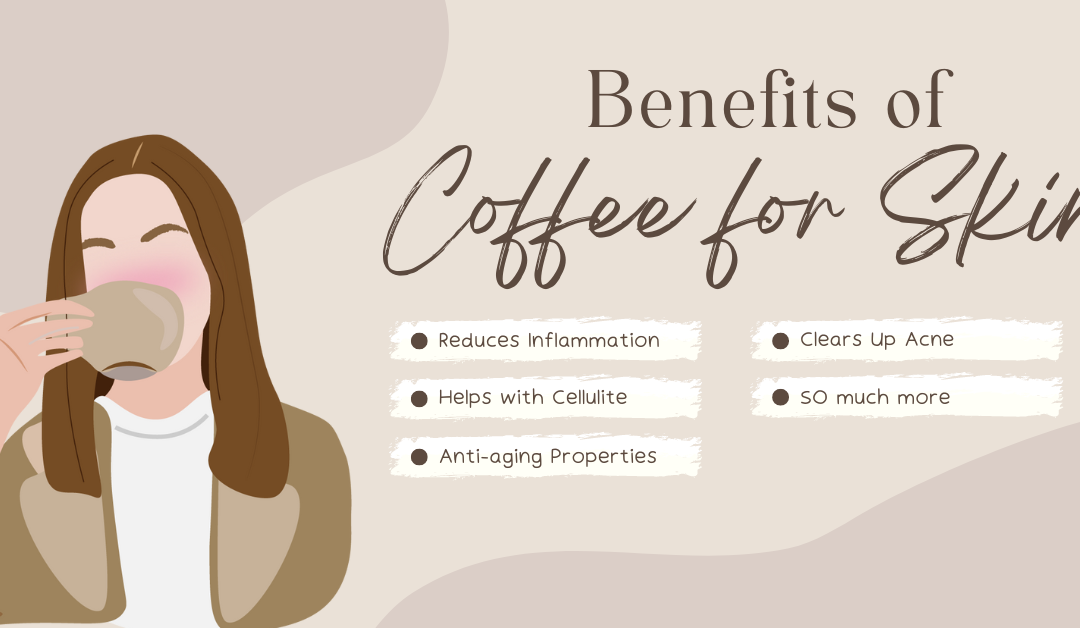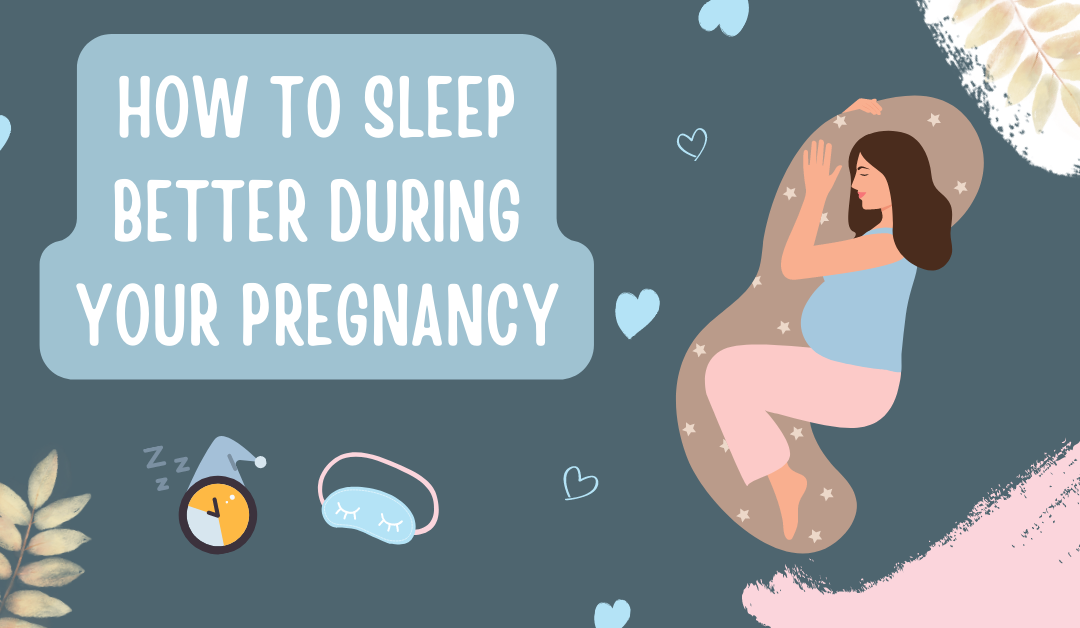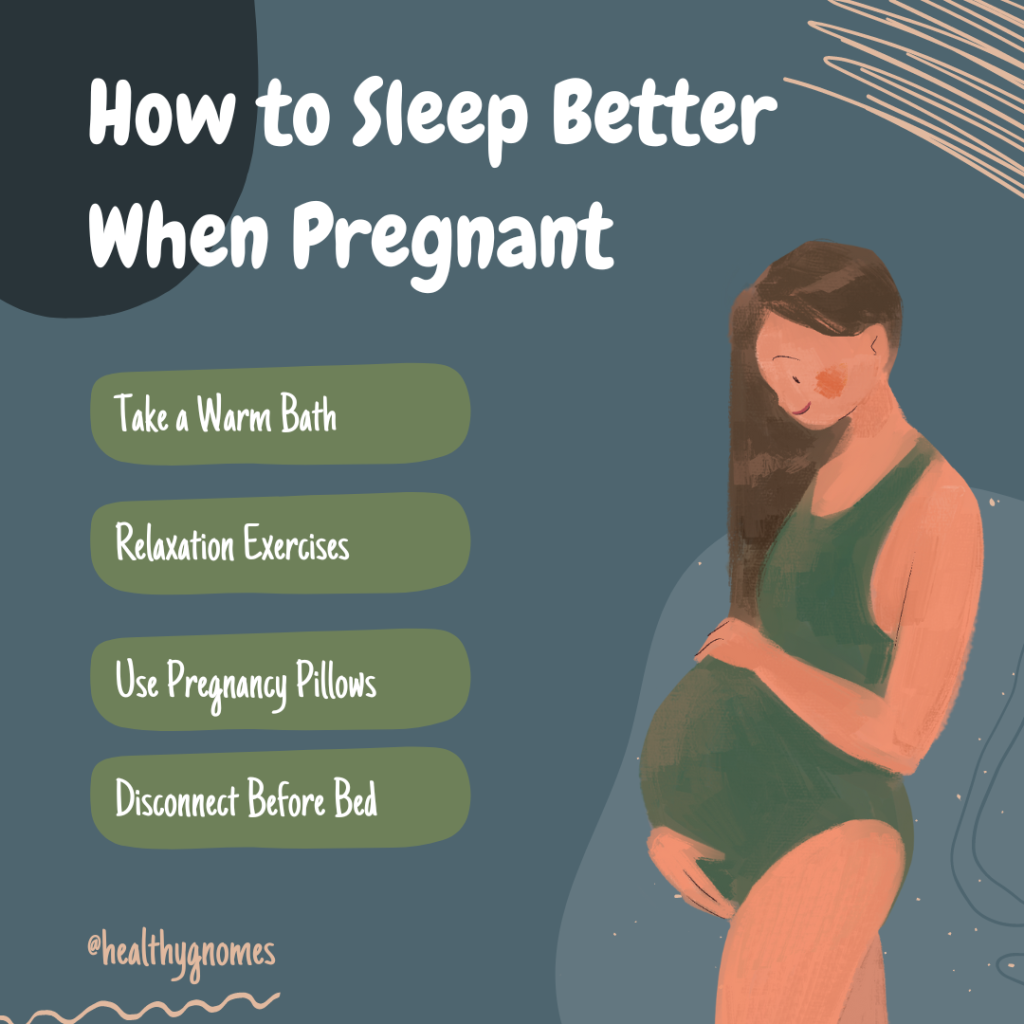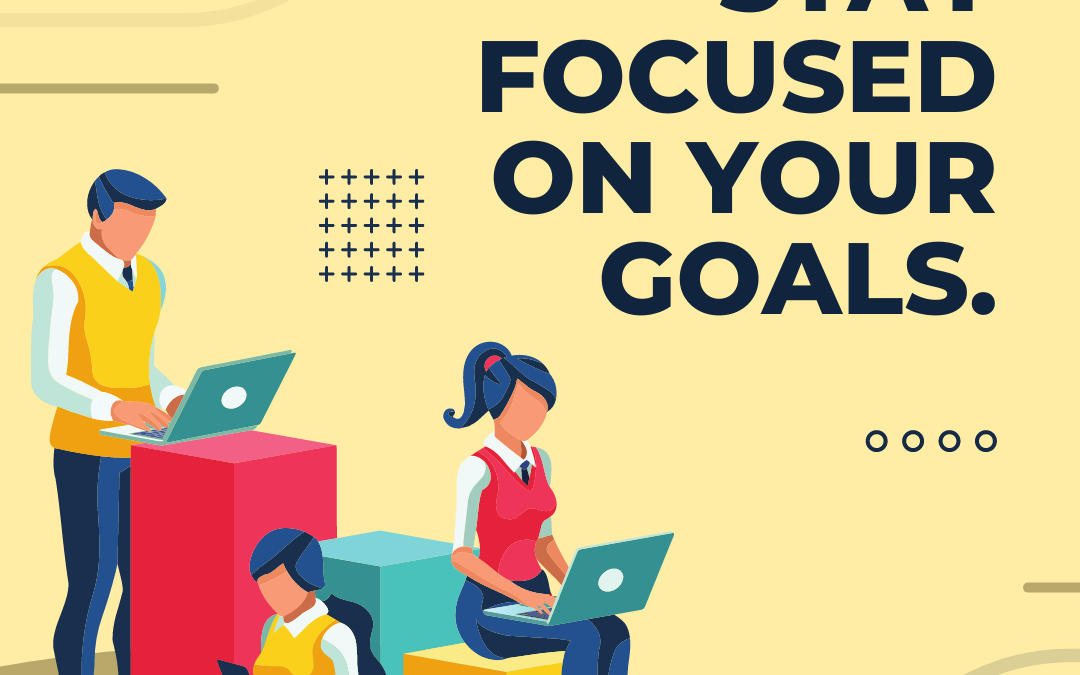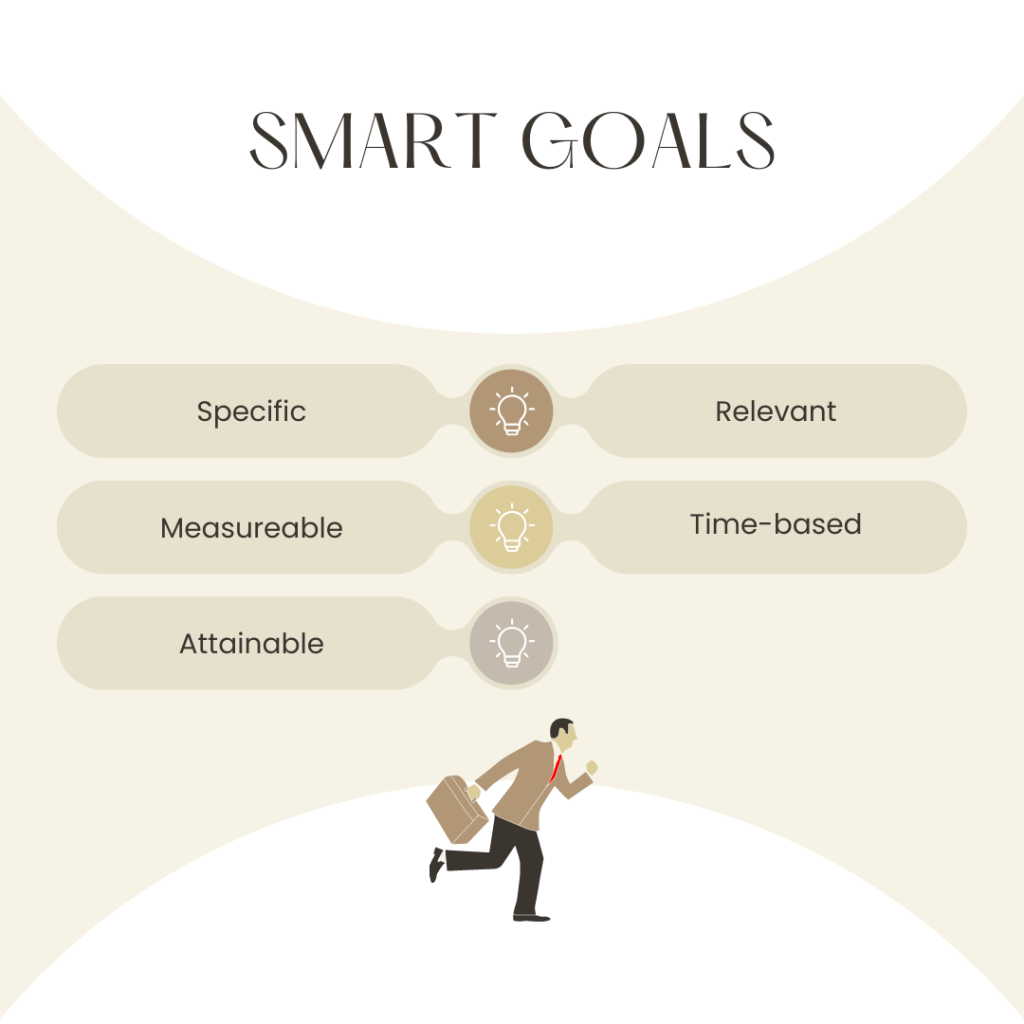
by Michael DeFelice | Last updated Mar 18, 2023 | Health and Wellness |
Meditation is growing in popularity. People want to experience the mental clarity of meditation and others want to turn to mindful living. However, there’s a growing number of people asking, “why doesn’t meditation work for me?”
For a long time, I was one of these people, too.
After falling asleep or getting stuck in thoughts about everything, I figured that I had an attention disorder. But, then I started delving deeper into the question of why can’t I meditate?
And I found out that meditation is harder than most people think, and it takes time to learn how to meditate. For some people, meditation is boring, and if it’s something that you’re being pushed into and don’t really care about, you might never master meditation.
However, for everyone else that can’t meditate, these few reasons may be holding you back.
What Doesn’t Meditation Work for Me? 7 Reasons Why You Can’t Meditate
1. Your Meditation Space is Filled With Distractions
Meditation apps are helping a lot of people get into meditation. In fact, one report found apps led to a sharp rise in people meditating. However, if you’re trying to meditate and you hear your notifications going off or someone is trying to FaceTime you, it will interrupt your meditation practice.
You need to completely disconnect and have some time for yourself to meditate.
Your daily routine should include 10+ minutes of meditation, where all you have to stay focused on is meditation. This means:
- Let everyone in your home or space know that you need to be 100% alone
- Turn your phone off or on vibrate
- Shut off notifications on your phone, smartwatch or other devices
- Keep animals out of the room – just for your session
It’s true that “focusing” on meditation is a misnomer because you’re supposed to let your mind go into a state of nothingness or bliss, but a lot of people can’t meditate because they’re multitasking.
Multi-tasking works great for a lot of things in life, but it doesn’t work when you practice mindfulness or meditation.

2. Practice Sessions Are Too Long
Remember when I was asking myself why can’t I meditate? My expectations were far too high. If you think you need a 30-minute meditation session or nothing, you’re wrong. Instead, when you’re just starting out, try keeping your meditation to 5 – 10 minutes
When you notice that your mind begins to wander and you’re no longer meditating but thinking about work or worrying about what you’re going to eat for dinner, get up.
Short mediation blocks work best for people questioning why is meditation so hard?
3. Judging Yourself
Focusing on yourself and your own faults is never going to help you meditate. Often, people judge themselves the entire time:
- Am I meditating properly?
- Why doesn’t meditation work for me?
- What’s wrong with me? This should be easy!
- I’m horrible at this.
- I’ll never learn to meditate.
And then, by judging yourself, you begin focusing on all of these negative thoughts and start blocking out the positive thoughts you need to find success in meditation. Instead, make meditation judgment-free and focus on being present.
One method that works very well for remaining in the present when meditating is to focus on your breath.
- Breathe in and focus on the lungs filling
- Breathe out and focus on emptying your lungs fully
- Focus on your chest rising and lowering as you breathe
4. You’re Dead Tired
One mistake that I was personally guilty of when trying regular and candle meditation was thinking that it would be easy to do while lying in bed right before going to sleep. Even if it’s the middle of the day and you’re exhausted, meditating is a bad idea.
Why?
You’ll fall in and out of sleep the entire time. Many meditation teachers call this the “sleepy passive state.” If you’re really tired, once you close your eyes and let your mind wander, you’ll start dozing off.
A better idea is to:
- Meditate first thing in the morning, or
- Meditate at a time when you’re wide awake
If you exercise, you may find that you’ll have a much easier time meditating after your workout. Find a good time to meditate and stick to it.
5. Practicing Inconsistently
Meditation is a lot like anything else in life: it takes practice. If you meditate once every six months, you’re going to start at square one every time. The ideal way to begin meditating is:
- Start in small meditation blocks of just five minutes
- Practice every day, or more days than not
If you make it a point to meditate daily, you’ll find it becomes much easier over time.
6. Expecting Way Too Much
Meditation means something different to everyone. Some people expect way too much from their experience, but meditation is a cumulative effect rather than an immediate benefit. Don’t have expectations of:
- Spiritual awakenings
- Laser-focus
- Major life improvements
- Eliminating all of life’s problems
Instead, just meditate to benefit from the heightened awareness that it will provide you with in time. Take your meditation journey one session at a time and don’t expect anything.
7. Considering Mind Wandering to Be Failure
When I was first starting to meditate, my mind wandered a lot. Unfortunately, I thought this wandering meant failure until I read a book by Thich Nhat Hanh. I can’t remember the exact phrase, but he mentioned focusing on a leaf or object that you were thinking about.
So, if my mind wandered and I was thinking about having to run an errand, I would envision walking to the errand and then visualize a leaf. I would follow the leaf to a serene location and watch it float down the water. Feel the breeze in the air. Etc.
Use these “daydreams” as the escape your brain needs.
Focusing on the leaf helped me a lot because I was able to block out everything else in my mind by focusing on the leaf. Silencing your mind is a beautiful retreat from reality and something that meditation offers if you’re willing to practice, consistently.
Bonus Tip
If you really want to meditate but are finding every excuse not to or fail to actually practice, one of the benefits of group meditation is that it keeps you motivated. Sometimes, group meditation works very well for some people, while others prefer to be alone.
Maybe you would excel in a group environment if you’re not finding success with your own practice.
Does Meditation Work For Everyone?
Eventually, meditation works for most people. “Everyone” is quite a large number, and there are going to be people that think meditation is boring and do not put their all into their practice. While I’m not 100% positive, I am also sure there are people with attention disorders that simply can’t meditate because of it.
But for most people, meditation will work.
If you try mantra meditation and it doesn’t work for you, try other forms of meditation. You’re sure to find some form of meditation practice that will work for you.
Wrapping Up
Now instead of asking, why doesn’t meditation work for me, you can focus on ways to start meditating. Often, there are simple distractions or false expectations that you’ll be a meditation practitioner in a single meditation session.
Instead, you need to change your mindset and the goal of meditation.
Regular practice is a must if you want to feel a sense of peace, improve body awareness, reach spiritual growth or just experience the positive impact and emotional benefits of meditation. Stay on course. Enjoy your meditation journey. And keep practicing.
Over time, you’ll find that benefits from meditation start popping up and you enjoy the journey even more.

by Rene Emery | Last updated Mar 18, 2023 | Health and Wellness |
Changing out your morning coffee for something new doesn’t happen often. I mean: would you stop drinking coffee? I wouldn’t. But I am not opposed to trying something new, especially if it’s good for me. Bulletproof coffee is the new “hot” drink, and it actually tastes pretty good.
We’re going to look at bulletproof coffee benefits, explain why you may want to start drinking it and see if this drink is worth drinking instead of your morning brew.
But before we start, what the heck is bulletproof coffee?
What the Heck is Bulletproof Coffee?
If you’re envisioning coffee beans with a Kevlar vest on, you’re way off. Instead, bulletproof coffee is part of a diet, and the goal is to drink this coffee rather than eat your traditional, carb-filled breakfast.
This coffee consists of:
- High-quality coffee beans
- Unsalted butter
- Coconut oil (or a medium chain triglyceride)
You brew up the coffee like normal, blend up the ingredients really well and end with a brew that is rather similar to a latte and really creamy.
It’s very important that you focus on quality ingredients when making your cup of coffee. You’ll want to focus on:
- Organic, grass-fed butter
- Good quality coconut oil
You won’t be adding any milk, so you’ll be drinking a black coffee, although you won’t notice it with the coconut oil and grass-fed butter mixed in.
Now that we’ve defined bulletproof coffee for you, let’s answer an important question: What are the benefits of bulletproof coffee?
Let’s find out.
4 Must-Read Bulletproof Coffee Benefits
1. Energy Boost Instead of a Crash
In the morning, most people eat breakfast foods that cause them to crash. A regular diet may consist of:
- Pancakes
- French toast
- English muffins
- Pop tarts
- Cereal
And in the morning, everyone seems to be in a rush, so they’ll grab the absolute fastest thing to eat. No one is thinking about a balanced diet or their digestive health when they’re rushing off to work.
One of the most important bulletproof coffee health benefits is that you’ll feel filled with energy for longer. You don’t have to worry about feeling very energetic after eating only to experience a blood sugar crash shortly after.
As an alternative to breakfast, bulletproof coffee is rather impressive.
Of course, you get the jolt of energy from coffee, but research shows that the real energy booster comes from the omega-3 and omega-6 fats that:
- Slow metabolism of the butter
- Cause you to hold onto energy
- Naturally protect against crashing
MCT oil also aids in energy retention and the boosting effects of bulletproof coffee. MCTs are metabolized quickly for energy, while butter will work to help you maintain energy stores. Without the carbs and sugar, you won’t experience the immediate energy boost followed by the “did I even sleep” feeling 30 minutes later with bulletproof coffee.
2. Encourages Weight Loss
Most of the bulletproof coffee benefits that you’ll read about online deal with the keto diet. People that follow this diet need to have high fat in their diet, and they want to remain in a state of ketosis.
Studies on MCTs show that it:
- Improves ketone conversion
- Supports keto diet
- Reduces side effects experienced with keto (i.e., keto flu)
Anyone on a low-carb diet who wants to find something to eat for breakfast should consider coffee with butter or ghee and an MCT oil. You can even have it after your morning workout without worrying about carbs being stored as fat, like what would happen with other breakfast foods.
Keto works for a lot of people because it uses body fat for energy and can help them improve their body composition.
In short: bulletproof coffee is a good breakfast substitute.
3. Anti-inflammatory Properties
Bulletproof coffee benefits also include anti-inflammation. MCT oils have been shown in studies to have anti-inflammation properties. The omega-fatty acids in the grass-fed butter also lend their own anti-inflammatory effects to your morning brew.
Optimizing the anti-inflammatory properties requires you to be very cautious of the ingredients that you put in your coffee.
In the ideal world, you’ll purchase ingredients that include:
- Organic coffee
- Grass-fed butter
Following an anti-inflammatory diet is something that a lot of healthcare professionals recommend, and it’s something you’ll want to discuss with your doctor, too. Inflammation is linked to many diseases and chronic illnesses, so being able to reduce it will improve your odds of living a happier, healthier life.
4. Boost Brain Function
Coffee boosts your brain function on its own. Caffeine is a natural stimulant, and studies show that it can:
- Promote short-term brain function
- Enhance focus
- Improve mood
- Boost reaction time
Caffeine also helps to stimulate your central nervous system, which will enhance your mood by producing more serotonin and dopamine.
It’s really important to note that the brain-boosting benefits are associated with caffeinated coffee in general and not just bulletproof coffee. In fact, people drink coffee before exams because it makes them alert.
Studies even show that caffeine also improves alertness and is a great way to limit depression while also boosting mood. And the people who say “drink coffee and you’ll never sleep” are also misinformed. The truth is that coffee only disturbs sleep in certain very sensitive individuals.
If you’re concerned that you may be one of the individuals that are sensitive to caffeine, simply try to cut down your coffee consumption five or six hours before bed and see how you feel. Sleep is so crucial to your health that you may want to skip out on coffee if you can’t sleep well at night after drinking a cup.

Does Bulletproof Coffee Break a Fast?
Anyone dieting and following intermittent fasting (IF) may want to know: will bulletproof coffee break a fast?
And the answer is all over the place.
Naturally, people who push products for dieting say that bulletproof coffee and intermittent fasting work great together because it won’t break your fast. However, this is simply not the case because any caloric intake will break a fast.
When you fast, the body will enter autophagy, or a stage where it cleans up toxins in the body and repairs the body. However, a few points to note here are:
- Bulletproof coffee breaks your fast
- If you’re following the keto diet, this coffee is keto-friendly
So, to clarify, one of the bulletproof coffee benefits that are completely false is that drinking this creamy latte won’t break a fast. If you don’t want to break your fast and need an extra jolt of caffeine, you can drink completely black coffee.
Butter coffee or anything with added oils or sugars may fit into ketogenic diets and help you maintain your energy levels longer, but it will break your fast.
Are There Bulletproof Coffee Benefits for Skin?
Yes and no. Many of the skin benefits that you’ll read about are not because you’re drinking this type of coffee. Instead, your morning cup of regular coffee offers a ton of skin benefits, such as:
- Reduce acne
- Lower inflammation
- Protects the skin from UV-damage
- Improves wound healing thanks to linoleic acid
- Potentially reduces cellulite
- Reduces under-eye inflammation
And most of these benefits are actually due to the chlorogenic acids and caffeine in the coffee.
If you’re upset that bulletproof coffee benefits for skin aren’t really a “thing,” you’ll want to read through our extensive article on coffee benefits for the skin. Many of these benefits are exactly what you’ll experience with bulletproof coffee, too.
P.S. there are also coffee benefits for hair that will have your hair looking its best in no time.
Wrapping Up: Benefits of Bulletproof Coffee
If you’re into creamy coffee drinks, there’s no harm in experimenting with bulletproof coffee benefits for yourself. People on the keto diet find that this type of coffee is a good substitute for breakfast and is worth drinking alongside regular coffee.
You can use the basic recipe above to experience the health benefits of bulletproof coffee, or you can find companies willing to sell it to you premade.
But for me, I prefer making my own because it’s cheaper and I know exactly what I’m putting in it.

by Michael DeFelice | Last updated Feb 19, 2023 | Health and Wellness |
Do you wake up every day, put on the coffee pot, get ready and then wonder if you even sleep at night? If so, you’re not alone. Life is a struggle, and no one really teaches you how to feel well rested or stresses the importance of getting enough sleep per night.
Well, that’s going to change today.
I’m not a sleep specialist, but I’ve done a ton of research on quality sleep and restorative sleep that I want to share with you. Instead of giving you a list of sleep tips to follow, I recommend following the steps outlined below because they’ve been crucial in my own daily routine to feel well rested in the morning.
9 Steps on How to Feel Well Rested
1. Set and Stick to a Sleep Schedule
If you want to feel well rested in the morning, the first step is to set and stick to a sleep schedule. Setting a sleep schedule means going to bed and waking up at the same time every day – even on weekends.
When you follow a consistent sleep schedule, your body will naturally be tired and ready for bed when the time comes. Your body will also wake up naturally at the same time.
Consistency is key. If you’re following a schedule, you can be sure that you’re getting enough sleep most (if not all) days of the week. When you don’t follow a schedule, you may get to bed late one or two nights a week, which can throw off your entire rhythm.
2. Exercise During the Day
Want to know how to sleep less and still feel well rested? Get better sleep. The link at the start of the paragraph is a great place to start learning about sleep quality and the different types of sleep you’ll experience.
But without getting too technical, exercise during the day to sleep better at night.
Why?
- A review of 29 studies found that exercise improves both sleep duration and quality
- Four studies in the review found no impact of exercise on sleep
- One study found exercise negatively impacted sleep
So, the majority of studies found that exercise improves restful sleep and will help you feel well rested.
What happened in the other studies?
We can’t say with 100% certainty what happened with the other studies, but it’s very possible that participants did one of the following:
- Exercised too close to bedtime and had a jolt of energy after (don’t exercise if you have three hours or less before your head hits the pillow)
- Regular exercise wasn’t intense enough to promote better, deep sleep
Exercise is great for promoting sleep – in my experience. If you engage in intense endurance workouts, they can also make you sleep better. However, if you’re just “there” in the gym and not really pushing yourself, you might not notice a difference in how rested you feel the next morning.

3. Start Going Outside for 30+ Minutes a Day
Want to know how to feel well rested? Go outside. This may sound like “hocus pocus” to some or a crazy natural promotion, but it’s not. In fact, a study was done on increasing daylight exposure and sleep.
Participants in this study were office workers behind EC glass.
But, many experts recommend just going outdoors for about 30 minutes a day. Read a book. Exercise. Or just do something outside that you want to do.
Why?
The study found:
- Optimizing daylight led to better overall sleep
- Light exposure increased cognitive assessments by 42%
The CDC also recommends that you spend 30 minutes a day outside. Why? If you expose yourself to natural light, it will strengthen your biological rhythms. These rhythms will help you sleep better at night and feel more awake and energized during the day.
4. Establish a Bedtime Routine
Routines seem to help with everything. If you want to feel well rested, create a sleep routine. The issue that many people have, and this is definitely true for myself, is that I try cheating the system.
My ideal sleep routine looks something like this:
- Go to sleep at 11
- Wake up at 6 – 6:30
But when I finish work late or binge-watch television, I’ll stay up to 12 or 1 and still try to get up by 6:30. The first day, I might feel great, but I’ll eventually begin to feel tired and worn out.
You need to get a certain number of hours of sleep, often 7 – 8, for most people reading this article. Set a sleep schedule that you can follow every day and just stick to it. Within a week or two, you’ll realize that you knew how to feel well rested the entire time: sleep enough.
P.S. We have an intense article on how to get to bed on time starting tonight.
5. Incorporate Relaxation Techniques Into Your Nightly Routine
Some people are always going. You know, the people that clean the house, walk the dog, put the kids to bed, work on their degree and then plop into bed just thinking about what they’re going to do in the morning.
If you’re like this, drink a glass of wine and create a relaxation routine to actually get tired.
A few ways to do this are:
- Take a warm bath about 30 – 60 minutes before bed
- Practice deep breathing
- Engage in meditation
- Listen to soothing music
- Anything that relaxes you
Sleep architecture is important, and if you want to stop having a poor sleep and feeling exhausted in the morning, be sure to incorporate relaxation techniques before bed.
6. Don’t Eat a Big Meal Before Bed
If you want to wind down for the night, don’t eat a big meal. Certain foods will keep you awake at night. Instead, try not having a big meal before bed unless you know that the meal won’t keep you awake.
For example, if I eat a big bowl of pasta, it’s almost a guarantee that I’ll fall asleep very fast.
But, in general, try not eating within 2 – 3 hours before bed.
7. Avoid Caffeine and Naps in the Afternoon
If you can, avoid drinking caffeine after late afternoon or early evening. Caffeine takes 3 – 5 hours to half leave the body. The remaining 50% of the caffeine may remain in the body for a lot longer.
8. Change Your Space to Promote a Good Night’s Sleep
Now that you’re not drinking your caffeinated hot or cold brew coffee, it’s time to focus on your space. A few of the changes that you can make in your space to promote sleep are:
- Eliminate light – blackout curtains work well
- Keep the room at 60 – 67 degrees Fahrenheit
- Eliminate noise
You really just need to block outside light, even if this means wearing a sleep mask, putting on a white noise machine and lowering your body temperature by keeping the room cool.
9. Make Sure You Don’t Have a Sleep Disorder
 Sleep disorders may not seem common, but when you look through the symptoms outlined by the CDC, there are quite a few that you may have. If you’re trying to learn how to feel well rested, go through these symptoms and check any that you’re experiencing:
Sleep disorders may not seem common, but when you look through the symptoms outlined by the CDC, there are quite a few that you may have. If you’re trying to learn how to feel well rested, go through these symptoms and check any that you’re experiencing:
- You take 30 minutes or more to fall asleep
- You wake up earlier than you should in the morning
- You sleep 7 – 8+ hours a night and don’t feel rested
- When you wake up, you feel like it’s difficult to move
- You use stimulants to stay awake during the day
- Your arms or legs jerk when you sleep
- When you sleep, you snore loudly or make a choking sound, often attributed to sleep apnea
- Sometimes, you have sudden muscle weakness when you laugh or get angry
- If given a chance to nap, you fall asleep within 5 minutes
Of course, these are just some of the symptoms of a sleep disorder that you should be concerned about. A doctor’s checkup will help verify if you have a disorder or if you need to change up your bedtime routine.
Final Thoughts
If you’re struggling to feel well rested in the morning, even after a good night’s sleep, consider talking to your doctor. Sleep disorders are very real and may be the culprit holding you back from feeling well rested.
Now that you know how to feel well rested when you wake up, it’s time to go through each of these steps and see how they work for you.
Often, small tweaks to your sleeping habits can make you feel so much better.

by Michael DeFelice | Last updated Mar 18, 2023 | Health and Wellness |
Coffee is something that we love to write about because we drink a lot of it. And with any habit, you always want to learn more about it and how it impacts you. After writing about coffee scrub benefits for skin, we got to thinking: are there any coffee benefits for skin that don’t require a scrub?
And there are.
In fact, you’ll want to pour yourself a delicious cup of coffee before sitting down to read this article.
6 Coffee Benefits for Skin No One Ever Told You About
Skin health is important. Everyone wants to look young and beautiful forever. However, even going out in the sun can cause sun damage that impacts your skin. The good news is that a few cups of coffee can do a world of good for your skin.
1. Say Good-bye to Puffy Eyes and Inflammation
A lot of people drink coffee because it can reduce inflammation. One of the green coffee benefits for skin that is often promoted is “anti-inflammatory properties.” But, the truth is that your regular coffee also has these anti-inflammatory benefits.
The secret is in the chlorogenic acid in the coffee, along with melanoidins.
Researchers in Japan found that women that drank coffee saw a reduction in pigmented spots. When consumed, this means that coffee may help with:
- Overall inflammation
- Puffy eyes
- More
Coffee masks or a facial scrub work really well for puffy eyes. If you use coffee grounds for a scrub, be sure to use circular motions when applying to maximize the coffee benefits for skin puffiness.
2. Reduce Cellulite – Seriously
Cellulite is the one benefit of coffee for your skin that will blow you away. Researchers believe that the caffeine content in coffee will:
- Dilate blood vessels
- Improve blood flow
When your blood flow improves in areas where you have cellulite, it will lead to a decrease in the appearance of cellulite. Of course, if you apply a scrub, these benefits improve even further.

3. Anti-aging Properties
Again, no one wants to age. If you drink coffee, you can help stop the clock from ticking, according to one study. The study found that coffee offered numerous benefits that aid in anti-aging, including:
- Reduction in fine lines
- Decrease in sunspots
- Reduction in redness
In addition, one of the coffee benefits for skin in the study that is most impressive is that it helped decrease photoaging – a major perk.
4. Clear Up Acne
As many as 50 million people in the US alone suffer from acne. This means 1-in-6 or 1-in-7 people have some form of acne. A primary culprit is the population’s large consumption of non-low sugar drinks.
Coffee benefits for skin infections cannot be underestimated.
Why?
Coffee contains CGAs, which are often promoted for their high anti-inflammatory properties. However, CGAs are also great for fighting acne because they have antibacterial properties. Drinking coffee will provide some of these benefits, but you’ll also want to make use of your coffee grounds and make a scrub.
The grounds will allow for direct acne-fighting power while exfoliating the skin

5. Blast Away Those Dark Circles Under Your Eyes
Dark circles under your eyes are not flattering, but coffee comes to the rescue here, too. You’ll want to make your own scrub or a coffee face mask for this benefit. When applied to the area, coffee will improve blood circulation and cause your blood vessels to dilate.
Why is this important?
Dark circles under the eyes are thought to be caused by a lack of blood vessel dilation. Caffeine in the coffee grounds will promote the dilation process, eliminating the dark under eye circles. A basic recipe for a scrub that will work perfectly for this application, includes:
- Mix olive oil and coffee grounds together. You’ll want to use about ½ tsp of each will do the trick.
- Add in a very small amount of water.
- Mix the ingredients into a paste-like consistency.
- Apply under the eyes, ensuring that you don’t allow the mixture to get in the eyes.
- Let sit for 10 minutes.
- Rinse off.
You can repeat this routine as often as you need until you achieve the results that you desire.
6. Reduce Swelling in the Feet
Swollen feet are common. Stand too much or sit too much, and your circulation will be negatively impacted, leading to swollen feet and ankles. One way to reduce the swelling is to create your own coffee foot bath.
- Brew up a pot of coffee
- Allow the coffee to cool and place in a foot basin
- Soak your feet in the coffee
You can also add in the ground beans to help exfoliate your feet while you’re at it. The grounds will work like a scrub to rip off the dead skin cells. However, it can be quite messy when taking your foot out of the bath. If you do add grounds, be sure to place the basin in the tub when soaking so that you can easily wash the grounds away.
The circulation benefits we discussed earlier will help you improve circulation to your feet, allowing your body to move and expel the water in your feet.
You can obviously enjoy the benefits of black coffee for skin using this method. If you have old coffee grounds that you want to get rid of or a type of coffee you don’t like, you can make sure that it won’t go to waste by making your own foot bath.
And, if you want to take these benefits even further, coffee scrubs and coffee face masks can help you remove dead skin cells to improve your skin further.
Don’t like hot coffee? Read about the benefits of cold brew coffee.
How Soon Can You See Benefits for Skin from Drinking Coffee?
While we saw a lot of people asking this question, we couldn’t find a concrete answer. Every skin condition is different, and since many require topical application through a scrub or mask, it’s really too difficult to give you an accurate answer.
Many people that use scrubs or masks will notice a difference in their skin’s appearance after just a few applications.
Wrapping Up: What Are the Benefits of Coffee for Skin?
As you’ve seen, drinking coffee can be really good for your skin. Of course, applying coffee grounds to the skin or using an exfoliator will also provide great benefits.
In fact, why not brew a cup of coffee and use the grinds to make your own coffee scrub for a double whammy of benefits?
Coffee benefits for the skin are enough to convince most coffee lovers that their morning addiction is worth the 10-15 minutes to brew every morning. If you want to boost these benefits even further, you can try mushroom coffee, too.

by Rene Emery | Last updated Jul 23, 2022 | Health and Wellness |
Pregnancy takes your body on a wild ride. Your hormones are all over the place, and your body is going through so many changes every day. After all, it takes a lot of hard work and effort to grow a human. But there’s one thing that you may not have been prepared for: poor sleep. If you’re looking for tips on how to sleep better when pregnant, we have you covered.
But first, let’s talk about how much sleep you really need when you’re pregnant.
How Many Hours Should a Pregnant Woman Sleep?
When you’re pregnant, you’re not only eating for two, but you’re also sleeping for two. But how much sleep is enough?
Generally, you should aim for 8-10 hours of sleep during pregnancy. While it may be challenging to reach that goal, it’s important to try.
Inadequate sleep can cause problems down the road. One study found that pregnant people who got less than six hours of sleep were 4.5 times more likely to need a C-section. Their labor was also 10 hours or longer compared to those who got 7 or more hours of sleep.
As important as it may be, anyone who’s been pregnant will tell you that it’s not always easy to get a restful night of sleep.
To help you get a full night of sleep, we’re going to share some helpful tips on how to get better sleep when pregnant.
How To Get Better Sleep When Pregnant
Getting enough sleep in pregnancy can be challenging, especially during the first and third trimesters. Many people experience insomnia in early pregnancy, and in the third trimester, finding a comfortable position can be difficult (not to mention all of the middle-of-the-night bathroom breaks!).
It’s important to talk to your doctor about your disturbed sleep, but we’re going to share some tips that you can use to get more ZZZs now.
Take a Warm Bath
A little relaxation can go a long way in helping you get to sleep and stay asleep. Taking a warm bath before bed can help melt away stress and get into that sleep state of mind.
It’s important to stress the word “warm” here. Baths are generally fine to take during pregnancy as long as the water isn’t too hot (over 100 degrees Fahrenheit). You don’t want to soak in water that will raise your body temperature to above 102.2 degrees Fahrenheit, or 39 degrees Celsius.
So, stick to warm (not overly hot) baths. Play some soothing music, and just relax. If you have the time, try a guided meditation to calm your mind and body before bed.
Practice Relaxation Exercises
There’s so much going on during pregnancy that it can be difficult to relax. You’re excited about the future, but maybe you also have some anxiety about labor. Worries, fears and hormonal changes can make it harder to sleep.
If your mind is all over the place and it’s making it hard to sleep, there are relaxation techniques you can try to get your body and mind ready for bed.
Try these breathing exercises to help calm your mind and get your body into a relaxed state:
- Inhale slowly, pause and exhale slowly. Focus on controlling your breath and the way it feels to breathe in and out.
- As you inhale, feel your ribs expanding and your lungs filling.
- As you exhale, feel your lungs emptying and your naval pushing in towards your spine.
- Repeat for as long as you need or have time for.
Make sure that you’re inhaling and exhaling slowly. Taking quick deep breaths can cause you to hyperventilate.
To set the mood, try lighting an unscented candle and playing soothing music. Or just sit in peace and silence while breathing.
Practice relaxation techniques every evening before bed to help you get into a more relaxed state.
Try a Different Sleep Position
As you reach the third trimester, finding a comfortable position can be tricky. Experts recommend staying off of your back, especially during the third trimester. As the baby grows and your uterus becomes heavier, it can press down on the nerves in your spine as well as the major vein that transports blood from the lower body to the heart.
According to the National Sleep Foundation, pregnant people should sleep on their left side. Sleeping in this position can help improve the flow of blood and nutrients to both the baby and to your heart and kidneys.
But if you have an especially active baby at night, you may need to change positions every so often.
During the first trimester, it’s safe to sleep in any position you like because your uterus is still so small that it shouldn’t interrupt your sleep patterns.
Use Pregnancy Pillows
If you’re having sleepless nights because you can’t get comfortable, pillows may help.
Invest in some extra pillows and place them:
- Between your knees
- Behind your back for support and pain relief
- Under your baby bump
You can use a regular pillow in each of these spots.
Of course, you can also use a body pillow that’s made for pregnancy. These U-shaped pillows make it easy and comfortable to sleep on your side because they cradle you. They wrap around your body to provide support for your back, and you can place the bottom of the pillow between your knees for added hip support.
There are other types of pregnancy pillow shapes, too, like wedges and waist pillows. Find the shape that works best for your body type and comfort level.
Work on Your Sleep Hygiene
Practicing good sleep hygiene is also important during pregnancy. Creating the right environment and mindset is key. Here are some tips to improve your sleep hygiene:
- Keep the room cool and dark at night. Blackout curtains or sleeping masks can help block out light. The ideal room temperature for sleeping, according to experts, is about 65 degrees Fahrenheit.
- Set a consistent bedtime and prioritize sleep. Remember that you need about 8-10 hours of sleep per day, so make it a point to go to bed earlier.
- Take naps earlier in the day so that they don’t interfere with your nighttime sleep.
- Do something relaxing before bed, like read a book, take a bath or practice deep breathing.
- Avoid eating spicy foods or anything too heavy before bed to reduce the risk of acid reflux.
- Exercise regularly (with the okay of your doctor) and earlier in the day.
- Drink plenty of water during the day, but cut back in the evening to minimize bathroom trips.
The most important thing is to be consistent. Create an environment that promotes restful sleep and prioritize rest. Your body is hard at work creating new life, and that takes a lot of energy. So, give your body the much-deserved rest it needs to work its magic.
Eat Bland Snacks
A nighttime snack may help you get to sleep more quickly. But it’s important to make sure that you’re eating the right foods.
Try eating bland snacks and avoid sugary food before bed. It’s also best to avoid snacks that are spicy, fried or caffeinated.
Here are some great before-bed snack ideas:
- A light snack of wheat crackers, low-fat cheese and a few pieces of fruit
- Low-fat yogurt with toast
- Oatmeal or soup
If you’re dealing with morning sickness, bland snacks are ideal. Make sure that your snacks really are snack-sized. Eating too big of a meal before bed may cause indigestion or make it harder to get comfortable and fall asleep.
Disconnect Hours Before Bedtime
One of the best things you can do to improve sleep during pregnancy is to disconnect from your phone and other screens.
Smartphones and computer screens emit blue light, which makes it harder for your body to get ready for sleep. Blue light actually blocks melatonin, the hormone that makes you feel sleepy and regulates your circadian rhythm.
Plus, the bright light from phones and TV screens makes it harder to get into that relaxed state for sleep.
You don’t have to disconnect for the entire evening. Just aim to stop using electronic devices about 30 minutes before bed.

Final Thoughts
Use these tips on how to get better sleep during pregnancy and enjoy more hours of sleep. It’s important to remember that you’re sleeping for two. Lack of sleep will not only affect your mental health but will also affect the health of the baby.
Make sure that you’re getting enough rest at night, and if you’re really struggling with your sleep schedule, talk to your doctor about using a safe sleep aid.

by Michael DeFelice | Last updated Jul 17, 2022 | Health and Wellness |
We all have goals that we work towards one day and kind of push off over time. Perhaps you really don’t want to be fit or learn a second language. But if you’re like me, the biggest issue is learning how to stay focused on goals.
Motivation is fleeting, and while you may feel filled with energy and excitement one day, the next, you may find yourself wanting to sleep in just a little longer.
And before you know it, months pass by and you’ve done nothing to reach your goals. You didn’t follow a plan or even reach your first monthly milestone.
So, what can you do?
We’re going to outline the exact steps you can take to start staying focused on goals and priorities to start living your best life.
How to Stay Focused on Goals? Start With the Basics First
Before moving into any tips or recommendations, you need to do a little preliminary work first. I remember banging my head against the wall and asking, “how do I stay focused on my goals?” And if I had just listened to the basic recommendations of others, I would have reached my goals faster.
The basic recommendations, include:
Learn What Motivates You
What motivates you?
- Money
- Knowledge
- Health
- Impressing others
- What?
Every goal has a motivation. For example, do you want a new home because it will be closer to the city or offer you peace and quiet? Or do you want a new home to impress others? Are you going to the gym to improve your health or impress someone else?
If you reach your goal, what will it mean to you?
Goals tend to be less realistic when they’re for vanity or for something short-term. For example:
- You want to get fit to impress someone is less likely to become a reality than…
- You want to get fit for yourself, feel better, have more energy, reduce health risks, etc.
Dig deep into what motivates you when setting a goal because you want the goal to be something that you can achieve.
Write Down Your Goals
Writing is a powerful tool. When you think “I want to reach this goal” in your mind, it’s not quite the same as writing it down on paper.
Why?
I have no idea. There’s a psychology behind writing down your goals. It makes them real.
However, instead of saying “I am going to lose 50 pounds,” it’s better to start with SMART goals.

What are SMART Goals?
SMART is short for:
- Specific
- Measurable
- Attainable
- Relevant
- Time-based
So, your goal is to lose 50 pounds. In this case, you may want to write down the following:
- S: I’m going to exercise daily.
- M: I will use an app to track my progress.
- A: I will aim to lose 1 pound per week.
- R: I want to reach my goal to fit into my old clothes, feel healthier and lift more weight. I want energy and to feel good about myself.
- T: I will lose the weight in one year for my high school reunion.
When it comes to time, you want to be realistic with your approach. How much time do you have to dedicate to your goal? What would a realistic time span be to reach your goal? Don’t ask your friends on Facebook or get inspired by someone selling a course on Instagram.
Really do your research here to know what’s attainable or you’re going to set yourself up for failure.
Once your goals are written down, it’s time to focus on ways to stay focused on goals so that you can actually reach them.
7 Advanced Ways to Stay Focused on Goals
1. Start With Challenging Goals
One study found that you’re 90% more likely to reach a goal when it’s challenging. Specific, challenging goals push us to be better people, and they’re something that you never want to underestimate.
If your goal is too easy, shoot for the moon and try again.
Want some motivation?
LES BROWN Self Commitment (SHOOT FOR THE MOON)
2. Create Milestones
Goal pursuits should be broken down into milestones, especially if you have lofty goals. For example, if your goal is to wake up early tomorrow, set the alarm and do it. However, if you want to become fluent in Spanish, you’re going to need to create milestones.
For example:
- Learn 500 words
- 1000 words
- 1500 words
- 2000 words
- Start reading kid’s books in Spanish
- Work with a tutor to practice speaking
And continue on with your milestone. There’s no trick on how to stay focused on long-term goals, but when you break down your goal pursuits, you’re going to feel satisfaction along the way.
Satisfaction creates a mental shift that allows you to continue working towards key goals.
3. Achievement-Based Motivation
There are a lot of different types of motivation. However, achievement-based motivation is something that you can will into existence and use to trick your brain into reaching your goals. For example, let’s say that you have measurable goals, such as landing 10 clients for your business.
Well, you can pat yourself on the back by:
- Treating your family to dinner when you land 5 new clients
- Going on vacation when you reach your goal
- Etc.
Achievements deserve to be recognized.
4. Work With a Coach
You may be ultra-independent and the thought of working with a coach may cause you to turn your nose up to the idea. However, if you’re not reaching your goals, there are literally coaches or tutors for everything.
Try and find a coach that has reached the goal that you want to reach.
You’ll find coaches for financial goals, weight loss goals, language learning – everything. If you know that you’re not the type of person to stick to your own plans or find a way to self-sabotage yourself, hire a coach.
Plus, if you’re anything like me, you hate wasting money, so paying a coach may help you even stay focused.

5. Measure and Adjust
Passive goal setting may work for some people, but when active goal setting, you need to measure and adjust. For example, you may have 1-3 major goals, and while you made progress early on to hit some milestones, progress may have stalled.
Don’t make the mistake of following a failed approach and losing time.
Instead:
- Measure your progress
- Adjust what’s not working
If you’re not tracking every facet of your plan, you won’t know if you’re inching closer to your key goals. Tracking goals over time allows you to make the adjustments necessary to continue on your path to success.
6. Use Time Chunks When Possible
Laser focus over a long period of time is difficult. Our attention spans are short, just 8 seconds – 15 minutes or more, and it’s easy to get stuck on time wasters, such as scrolling endlessly on Instagram.
The truth is that attention span depends on individual tasks and the individual.
If you’re not able to maintain your attention span, you may want to consider breaking tasks into chunks. For example, when trying to learn a language, opt for 10-20 minutes or 15-20 minutes of hyper-focused study time each day.
Are you working out?
Shut the phone off and hustle for however long you need. You can’t break every task into chunks, but if you can’t maintain your focus, using time chunks is a great way to maintain deep focus for longer.
7. Create a Plan
One of the key ways to stay focused on goals is to create a plan. Your plan should be focused on time management and include:
- Scheduling out the daily habits you’ll follow to reach your goal.
- To-do lists, which allow you to visualize goals and work towards achieving them one step at a time.
Your plan should be realistic and achievable. It’s imperative that the plan you create be so well-planned that if you follow it, you’ll reach your goals. Businesses use this type of in-depth planning to grow and build their brands. Often, it’s the foundation of the initial business plan that leads to success.
You need to create this foundation, too.
Plan out your journey for each task completion to reach your goals.
An ultimate goal should consist of a bunch of realistic goals. If you follow the tips above, you’ll find that you’ll reach your milestones or “mini goals” over time, which will keep you motivated and free from pesky distractions.
How To Stay Focused on Goals and Not Get Sidetracked With Friends
A social life is something that is so important in life. You want to reach your goals while also making memories with other people. Studies show that quality social relationships have short- and long-term effects on health.
Poor social relationships can impact:
- Health habits
- Mortality
- Physical health
- Mental health
However, reaching your goals is also something that you should never neglect because it’s also a major mental boost.
So, what can you do?
Plan for disruptions. If you know that your friend Jenn is coming to town next week, plan to have a day off with her. However, if the social disruptions and friends become too time-consuming, you may also want to:
- Schedule the tasks you need to perform to reach your goals early in the day
- Say “no” to friends on occasion to have time to reach your goal
True friends will respect the time and hustle that you’re putting in to reach a goal. You may not be able to spend every night out eating with your friends if you want to reach your goal, but you should try to have a healthy social life with friends.
Make memories and have a personal life, but also put your goals first.
How do I stay focused on my goals? Will power. Motivation is going to fade. Trust me. You might be ultra-excited to go to the gym four or five times a week, but when you don’t see progress overnight, the only thing dragging you to the gym is your own willpower.
The same can be said for virtually anything.
Nothing comes easy in life. Staying focused on goals and priorities takes a lot of hard work and dedication. But once you learn how to stay focused on goals, that’s when you create the best version of yourself.
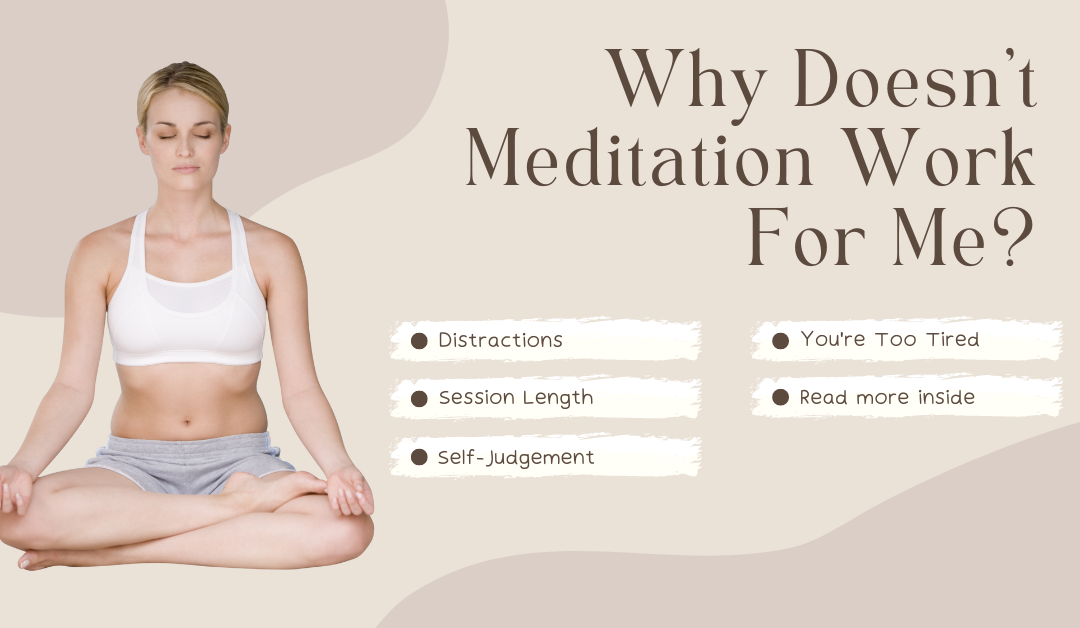


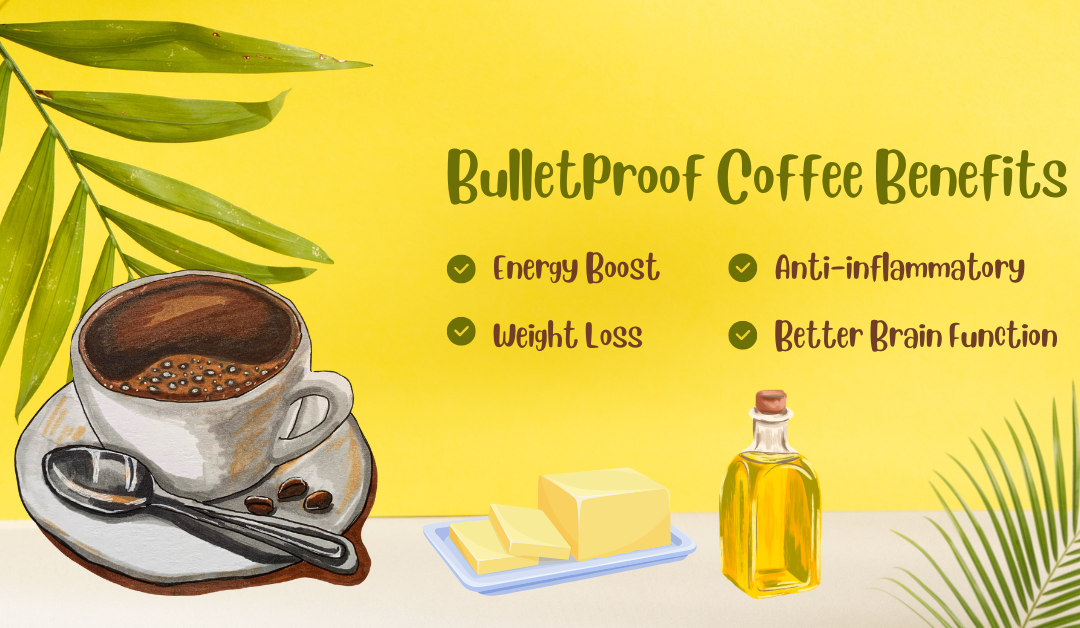

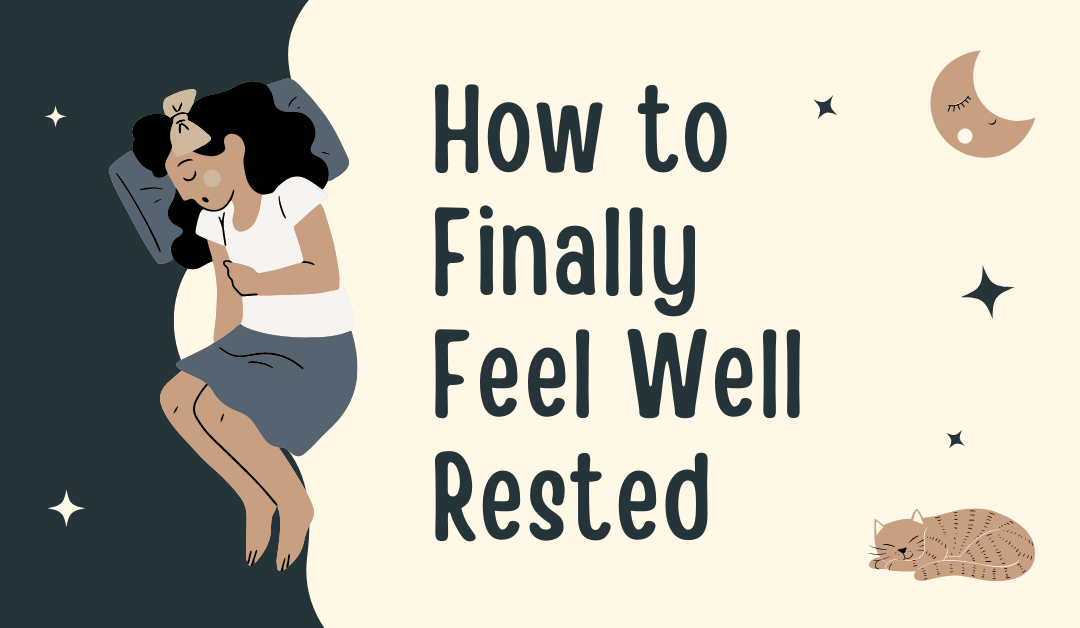

 Sleep disorders may not seem common, but when you look through the symptoms outlined by the
Sleep disorders may not seem common, but when you look through the symptoms outlined by the 